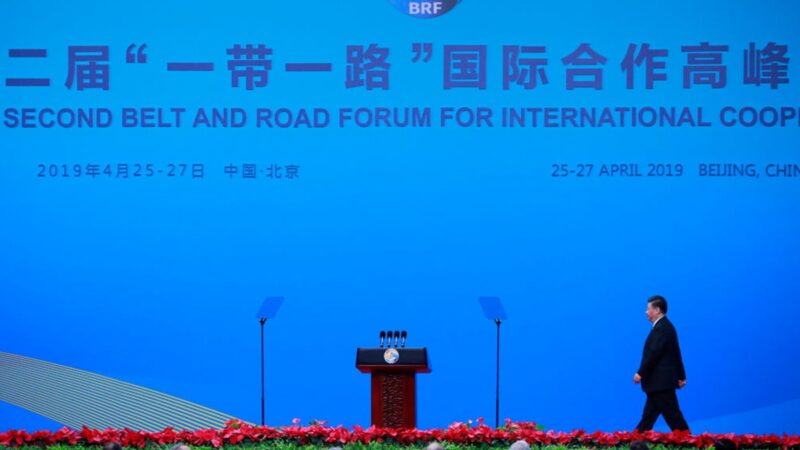[NTDTV, Beijing time, September 28, 2022]The “One Belt, One Road” initiative vigorously promoted by the CCP has brought heavy debts to many countries, and the CCP government is also facing the dilemma of seeking repayment. The Wall Street Journal disclosed that the Beijing authorities are discussing the more conservative “One Belt, One Road” version 2.0, intending to adjust the relevant plans and reduce the scale of the initiative.
The Wall Street Journal reported on September 27 that the Chinese government has spent $1 trillion to promote the construction of “One Belt, One Road” infrastructure and plans to expand its influence in Asia, Africa and Latin America through these projects. However, the global economic slowdown, coupled with rising interest rates and soaring inflation, has made it difficult for many countries to repay their loans to China. Tens of billions of dollars in loans have turned into bad debts, and many development projects have stalled. Recently, “people involved in decision-making” revealed that the Chinese authorities are “adjusting” the troubled initiative.
According to the report, the above-mentioned sources said that the authorities are now working on a more conservative plan, which has been dubbed “Belt and Road 2.0″ in internal discussions. They are also open to accepting loan losses and debt restructuring talks.”
Chinese banks have sharply scaled back lending to new projects in low-income countries as they focus on cleaning up their existing loan portfolios, the report said.
According to economists Sebastian Horn, Carmen Reinhart and Christoph Trebesch, nearly 60 percent of China’s overseas loans are now held by countries in financial distress.
The Wall Street Journal revealed that the Chinese government had to abandon its long-standing refusal to cooperate with international institutions such as the Paris Club. Currently, Beijing authorities are coordinating with members of the Group of Twenty (G20) to negotiate debt relief for some countries. And the process could force Chinese banks to accept losses, something the banking industry has long opposed.
According to the report, senior executives of the Chinese banking industry who participated in the above-mentioned internal discussions revealed that as early as 2017, the senior banking executives had lodged a complaint with the government in response to being asked to lend to the “One Belt, One Road” project with little expectation of recycling. He even threatened to stop lending. Those executives said at the time that they would only continue to lend unless regulators emphasized that they were lending “under the direction of policy” to prevent banks from being held accountable if they defaulted.
China’s Ministry of Finance is “cautious” about letting banks take on losses on Belt and Road loans, the sources said.
Earlier, some Western leaders criticized China’s Belt and Road Initiative as a form of “debt-trap diplomacy,” and many economists and investors have criticized China’s lending operations for fueling debt crises in places like Sri Lanka and Zambia.
The report also mentioned that Xi Jinping said at the “Belt and Road” construction symposium held in November 2021 that it is necessary to comprehensively strengthen risk prevention and control and expand cooperation.
Zhong Weifeng, a researcher at the Mercatus Center at George Mason University in the United States, analyzed that Beijing used to publicize that Chinese loans are of great benefit to the economic development of recipient countries, but now it has begun to emphasize “risk control” and “risk control”. Improved international cooperation shows the authorities are trying to correct course.
The Wall Street Journal has tried to verify the above information with the State Council, the Ministry of Finance, the People’s Bank of China and several banks involved in lending under the Belt and Road Initiative, but received no response.
(Editor in charge: Li Ming)
URL of this article: https://www.ntdtv.com/gb/2022/09/27/a103538337.html
